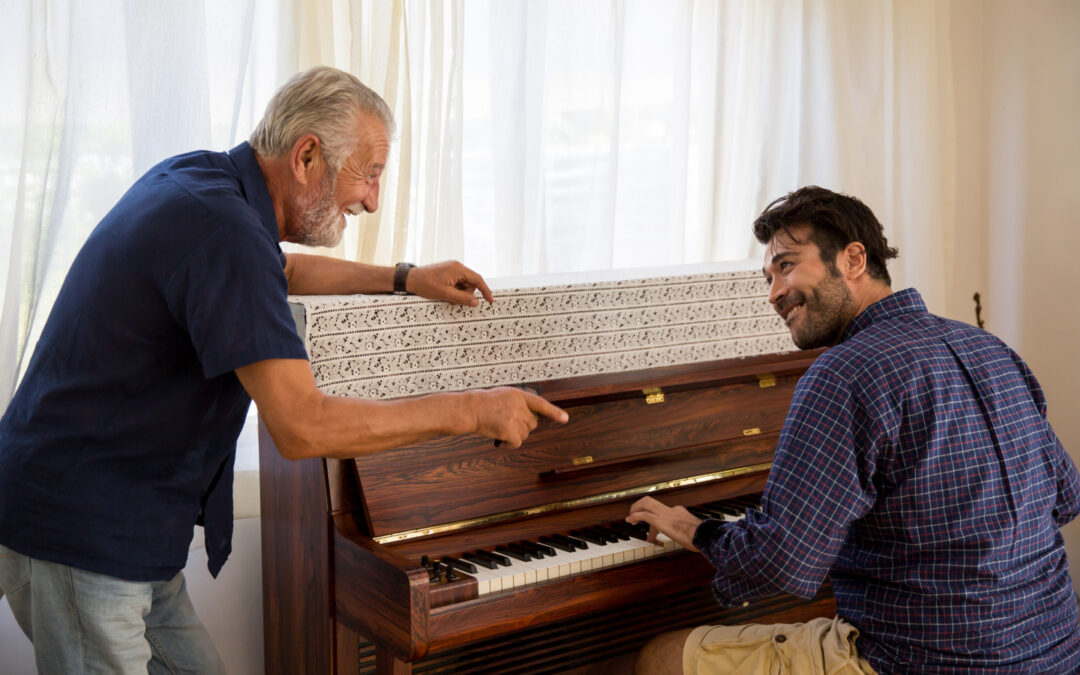Do you remember playing the game Battleship when you were a kid? You would try to discover where your opponent had stationed his ships on a grid representing the ocean so you could shoot and sink them. One shot, however, wouldn’t sink a battleship. Some ships could be sunk with as few as two hits while others would require as many as five.
As I have been involved in counseling cases of marital abuse I have observed a pattern which reminds me of the game Battleship. Few marriages are sunk with just one incident of abuse or incident of a church’s faulty counsel (shot). However, I have observed a pattern of multiple shots which can sink a marriage.
- The first shot – The husband and the wife are experiencing increasing conflict in their marriage. The husband is controlling and demanding and becomes angry when he doesn’t get his way (James 4:1-2). He says that there would be peace and happiness if the wife would be more submissive and helpful, often quoting Ephesians 5:22. Sometimes the wife reacts with anger, impatience, or disrespect. Understanding that she too is a sinner, she thinks, “perhaps it is my fault,” so she tries harder to be more submissive and more helpful.
- The second shot – In spite of the wife’s best efforts, the conflicts intensify and the husband’s expressions of anger appear to be getting worse (Matthew 5:21-22). A line is crossed – a verbal threat of physical harm is made, or he vents by throwing or hitting an inanimate object (or even a pet). The wife asks her husband if they can get counseling. He insists that their problems are due to her lack of submission and he commands her not to tell ANYONE about their domestic problems.
- The third shot – Other lines are crossed. The threats and intimidation become more severe. He may grab or push her in his fury. When she tries to leave the room in the midst of a conflict, he blocks her. Ultimately, a friend or family member can tell that something is wrong. They may see the marks of physical abuse on her arms or face (but abuse doesn’t always have to be physical to get to this stage of oppression). Or they may sense that she is extremely upset. They ask her what is wrong. After much hesitation she spills out her anguish. She is still not sure if it is her fault or if what is happening is “normal” in Christian marriages. What the listener does at this point is crucial. Some unwisely send her home imploring her to be more submissive in the hopes that the problem will go away.[i] Hopefully the person in whom she confides will encourage her to get godly counsel in the church. It may be that the situation is so severe that she should be encouraged to go to the police to report a crime and for protection. The abused wife may then speak to a church leader who may conclude that she and her husband need marriage counseling when another approach may be much more helpful.ii The husband reluctantly agrees, but makes her pay the price by the way he continues to treat her.
- The fourth shot – The couple goes to marriage counseling. We encourage counselors to counsel the husband and wife separately in cases of abuse (see footnote[ii]), but they are usually counseled together. The husband is calm and appears to be cooperative and even charming. The wife is more emotional and has a hard time expressing herself. She doesn’t want to appear to be unsubmissive or disrespectful and out of fear, she is reluctant to betray their family’s secrets. The husband deflects her concerns with accusations against her. She is quick to admit her sin, but he minimizes his part in their conflict. The counselor (often a man who happens to already be friends with the husband) finds the husband to be persuasive, especially if the husband promises to try harder to be more sensitive to his wife. The counselor wonders if the wife is overreacting. At home, however, things only get worse. As she seeks to trust the Lord, the wife has brought his sin out into the open. The husband becomes angrier and more controlling. He becomes more oppressively controlling. More lines are crossed, such as forced sex, demeaning words in front of the children, withholding finances, and/or restricting her contact with people he doesn’t trust. As things get worse, some family members or friends encourage the wife to consider separating from her husband. The wife, though, is still determined to make her marriage work.
- The fifth shot – The battleship sinks. The counseling fails to make things better in the marriage. If anything, the situation becomes worse. The situation at home is becoming unbearable for the wife. She starts reading books and blogs about abuse and recognizes the pattern of oppression which has occurred in her marriage for years. She speaks with other women who have gone through similar experiences and ended up getting divorced. She is losing hope that her church leaders will stand up for her and protect her from her husband’s abusive behavior. She decides that she is done. She moves out of the house and hires a lawyer who helps her file for separation or divorce. At this point her church may recognize that they have failed to recognize the husband’s oppression as they come alongside her to help her through this crisis. Or her church may fail one last time by blaming her for the breakup of her marriage, perhaps leading to her being disciplined for initiating a divorce.
- Once the battleship is sunk, it is almost impossible to raise it from the ocean floor. Our observation has been that the wife who was desperate to save her marriage through the first few stages (shots) described above often reaches a point at which she gives up on her marriage and has absolutely no more interest in trying to reconcile. It seems that you could more easily raise and sail the Titanic than you could get her to consider taking her husband back.
Advice for husbands accused of abuse
I use the battleship analogy to warn abusive husbands that they may be one “shot” or stage away from losing their marriage with almost no hope of getting it back.[iii] When a couple has been separated due to abuse, but while the wife is still open to reconciliation, I encourage the husband not to push too hard to come home if everyone involved isn’t confident that he is ready. If his wife allows him to come home and he falls back into his old patterns the battleship may take its last hit and sink forever. I also warn husbands that not all battleships can take five hits. Some sink after only two or three hits. Abusive husbands are essentially abandoning their marriage vows by oppressing their wives. Through the Lord’s grace, a wife may have maintained strength and patience for years under this oppression. After so many shots, and so many continuing patterns, a wife may feel broken. At that point, the abusive husband has sunk his marriage. It’s imperative that abusive husbands immediately repent before the Lord (Isaiah 55:6-7) and then their families while there is still hope (See my repentance card[iv] which lists differences between true repentance and worldly sorrow (2 Corinthians 7:10-11)).
Hope
I am thankful to God that my wife and I have recently been involved in cases of abuse and separation which appear to be on the verge of full reconciliation. While some people claim that abusers never change, we know that the Gospel transforms sinners into a new creation (2 Corinthians 5:17). Angry, oppressive and controlling people can be turned into gracious people. While some claim that victims can never learn to forgive their oppressors, the Gospel enables us to forgive others as God in Christ has forgiven us (Ephesians 4:31-32).
[i] I acknowledge that 1 Peter 3:1-2 instructs a woman whose husband is acting disobediently (like an unbeliever) to try to win him quietly by treating him better than he deserves. This passage, however, does not teach that a wife is obligated to endure oppressive ongoing abuse. When people in the Bible, including Jesus and Paul, were at great risk they fled from their oppressors to safety (John 10:39; Acts 9:25). Also, when Paul was the victim of unjust oppression he appealed to government authority for justice (Acts 16:37-38; 25:11). A wife has the right to confront her husband with sin and if necessary to involve others (Galatians. 6:1; Matthew 18:15-20).
[ii] In cases of abuse we strongly recommend that the husband and wife be counseled separately so that the wife can speak about her concerns without fear. We also believe that the wife should have another woman present who can serve as her advocate in the counseling. The husband should be counseled separately until he comes to a place of repentance for his oppressive behavior. For help in counseling abusive men, see https://ibcd.org/product/counseling-care-for-domestic-abuse/ and The Heart of Domestic Abuse, by Chris Moles.
[iii] My position as a pastor and counselor is that I always hope that the abusive spouse will repent and that the oppressed spouse will forgive and that the marriage will be restored. But my experience is that when a situation gets to this point such restoration is extremely rare.
[iv] https://ibcd.org/product/domestic-abuse-study-cards/ , https://jimnewheiser.com/counseling-cards-english/


